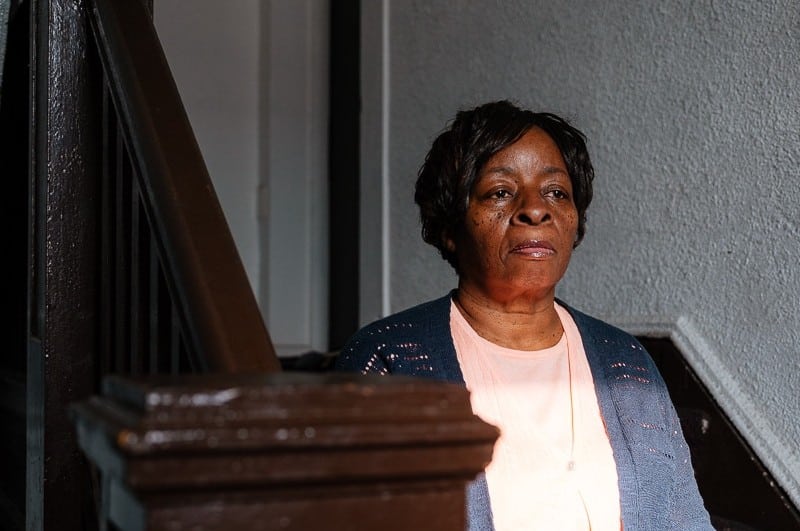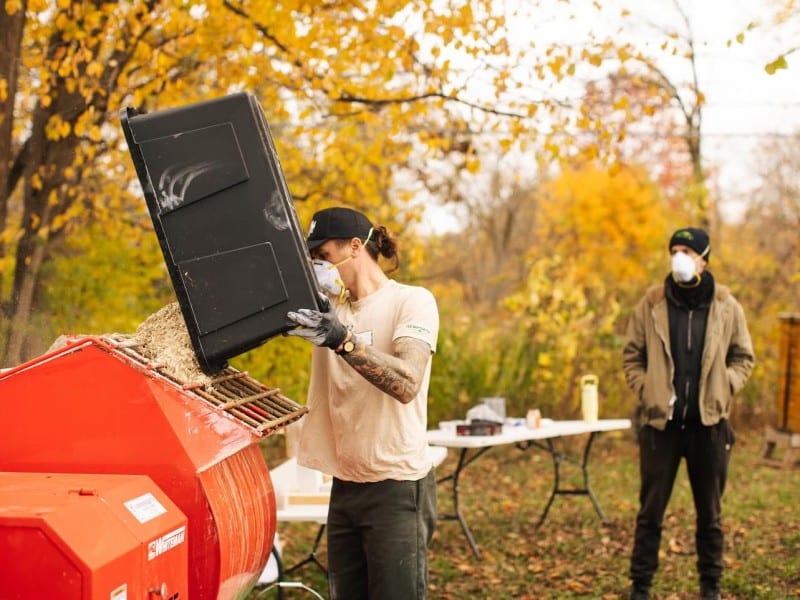Resilient Neighborhoods: This East Side nonprofit has embraced an innovative heart health program
This Detroit nonprofit is the first group in the state to pilot a new heart health self-monitoring program.
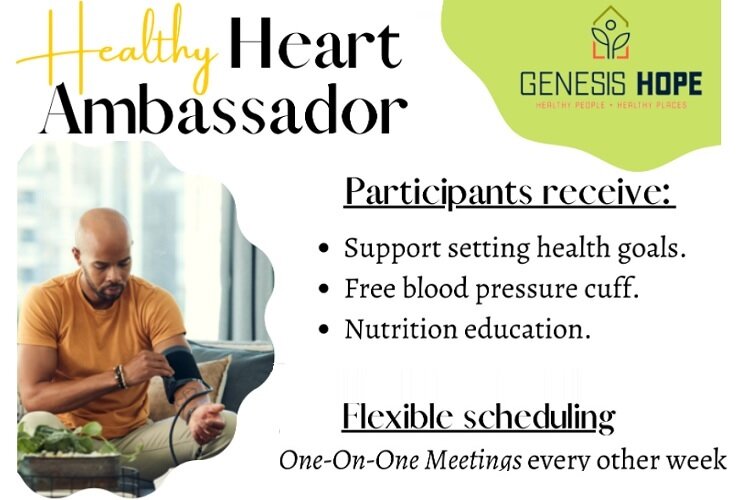
An East Side Detroit nonprofit is expanding its health offerings with an initiative aimed at helping Detroiters take their cardiovascular health to heart. GenesisHOPE, a faith-based community development organization that focuses primarily on the 48214 and 48207 zip codes, is the first organization in Michigan to sponsor what’s known as a healthy heart ambassador (HHA) program.
HHA programs are designed to help individuals self monitor their blood pressure while also encouraging participants to make healthy lifestyle changes. They do this by providing one-on-one support, educational information, and other resources. The evidence-based programming they’re based on was originally developed by the YMCA of the USA with the support of the U.S. Centers for Disease Control and Prevention (CDC).
Jeanine Hatcher, executive director of GenesisHOPE, first heard about the program through a nutrition-related network connected to Eastern Market. The nonprofit eventually decided to launch their own HHA program, due to the prevalence of heart conditions in their east Detroit service area. In Islandview, one of several communities they serve, 20% of the population struggle with high blood pressure (also known as hypertension), while 21% suffer from diabetes, and 45% are considered obese, according to the Detroit Health Department.
“These numbers are higher than the city’s average overall, and Islandview was a
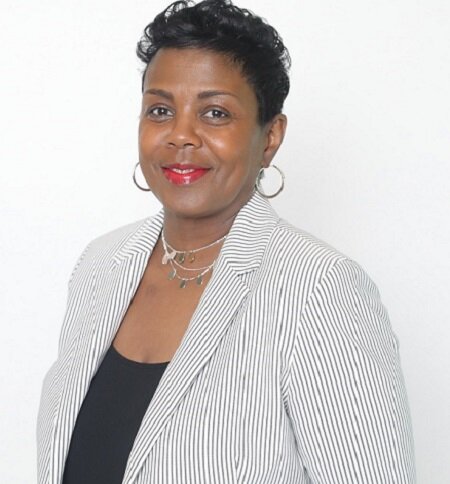
hotspot for COVID when it began,” says Hatcher. “And it is some of these underlying conditions that we believe led to a significant amount of people dying in our neighborhood.”
GenesisHOPE’s HHA program is a partnership with the Michigan Department of Health and Human Services Heart Disease and Stroke Prevention Unit. The agency provides training and funding for the program through a federal CDC grant, while the nonprofit takes care of its implementation.
Training began this May and the pilot officially launched in September. The pilot’s six participants were recruited from patients from Popoff Family Health Center, which partners with GenesisHOPE on other health-related programming. Individuals who are part of the four-month program receive blood pressure cuffs as well as support from trained GenesisHOPE staff.
“They meet twice a month [with staff] to do their blood pressure and we use Zoom so we can see each other,” says GenesisHOPE program coordinator Micah Wilson. “So it’s self-monitoring, but it’s assisted self monitor, just so we can be sure they’re getting assistance with reading or posture and making sure they don’t have any coffee before [the reading].”
Beyond these regular check-ins (known as office hours), participants in the pilot also met virtually once a month as a cohort to discuss topics like physical activity and fiber intake, which are part of the HHA curriculum, and ask questions.
Wilson said each of the cohort members showed up for all their office hours and monthly group sessions.
“It was wonderful to see the control that our participants took over the decisions that they made and just following the guidelines,” she says. “It’s beautiful how things like that could spark a change in their diets and what they do and how it contributes to how they live.”
Now with the pilot completed, GenesisHOPE is looking to expand participation to between 12 and 20 people for its next session, which is expected to begin this summer. The program will be open to residents in the nonprofit’s service area. They can register to be part of the next session on the nonprofit’s website.
Delivering Fresh Prescriptions
The new HHA program isn’t the only step GenesisHOPE has been taking to address the social factors connected to health in the communities it serves. It’s also involved with a program called Fresh Prescription that allows low-income individuals with chronic issues to get prescriptions for fresh fruits and vegetables from their primary care providers. The produce is free and delivered to participating patients’ homes with recipes they can use to cook meals.
“We go into the program with the ideology that food is medicine, because the program is geared towards patients with a history of hypertension or diabetes,” says Bre’Anna Jackson, who serves as a GenesisHOPE program coordinator for Fresh Prescription.
GenesisHOPE is part of a larger network of Detroit organizations working with
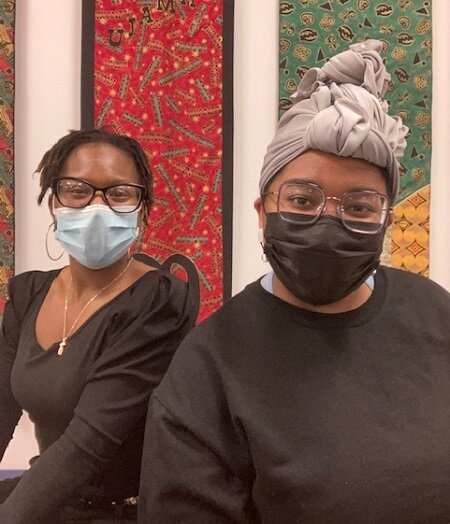
Eastern Market to make the Fresh Prescription program available to residents around the city. Now entering its fourth year with the program, the East Side nonprofit has been partnering locally with Authority Health, operator of the Popoff Family Health Center, and Peaches & Greens market to bring the annual 12-week program to residents in its service area.
In addition to having produce valued at $15 delivered to their door each week, patients in the program meet with nutrition educators over the phone every other week to discuss topics like MyPlate dietary guidelines, and healthy versus unhealthy fats. They also check-in regularly with their health providers to assess their blood pressure levels and other biometrics.
Donna Clark, a former secretary who lives on East Grand Boulevard near Lafayette Street, is a former Fresh Prescription patient with GenesisHOPE. She’s a big fan of the program, which helped her lose around 240 pounds and stop being diabetic.
“It was beautiful,” she says. “I told them I don’t eat kiwis, but beyond that it was good. Every one of my fruits was fresh, and I still use the recipes today!”
Prioritizing Community Health
Beyond that, GenesisHOPE is also responsible for several other community health related services. It sponsors a peer learning group called Fresh Conversations, which takes place on Thursdays at 2:30 pm. Through these discussions, which currently take place over the phone, participants can learn about and share health tips, recipes and exercise ideas during conversations facilitated by community health workers.
The nonprofit also hosts virtual cooking classes geared towards several different age groups called the Learning Kitchen. The six-week classes take place on Thursdays at 6:30 pm. Ingredients are provided to those who register. And they are shown how to prepare a variety of low-salt, low-sugar meals and get an opportunity to learn about nutritional facts, proper portioning and budget grocery shopping strategies.
Throughout the pandemic, GenesisHOPE has been active in distributing personal protection equipment (PPE) and educating people about the impact of COVID. And it’s currently looking into offering COVID testing and vaccination services, which it hopes to make available later this year.
The nonprofit also sponsors a call-in help desk that can be reached via phone at 313-731-2063. The desk offers access to community health workers and can be used to help apply for MIBridges benefits and to access a variety of emergency resources.
“There are a lot of social factors that impact people’s health,” Hatcher says. “With our WeCAREHelp Desk we’re looking at trying to remove barriers like access to food or needing extra cash. We have some direct services, but at the end of the day we’re trying to remove social risk factors that impede people’s good health.”
Working with other institutions in the healthcare industry, GenesisHOPE is also participating in a statewide food as medicine network to advocate for programs like Fresh Prescriptions, which are currently grant-funded, to be included in programs like Medicare and Medicaid. That in turn is part of a bigger push by the nonprofit to work with different partners to address community health issues.
“We are trying to strengthen our community development organizations connection to the health care sector, so that we can all begin to work more closely together,” says Hatcher. “At the end of the day what we’re looking at is trying to remove those. social risk factors that impede people’s good health.”
Resilient Neighborhoods is a reporting and engagement series that examines how Detroit residents and community development organizations are working together to strengthen local neighborhoods. It’s made possible with funding from the Kresge Foundation.


